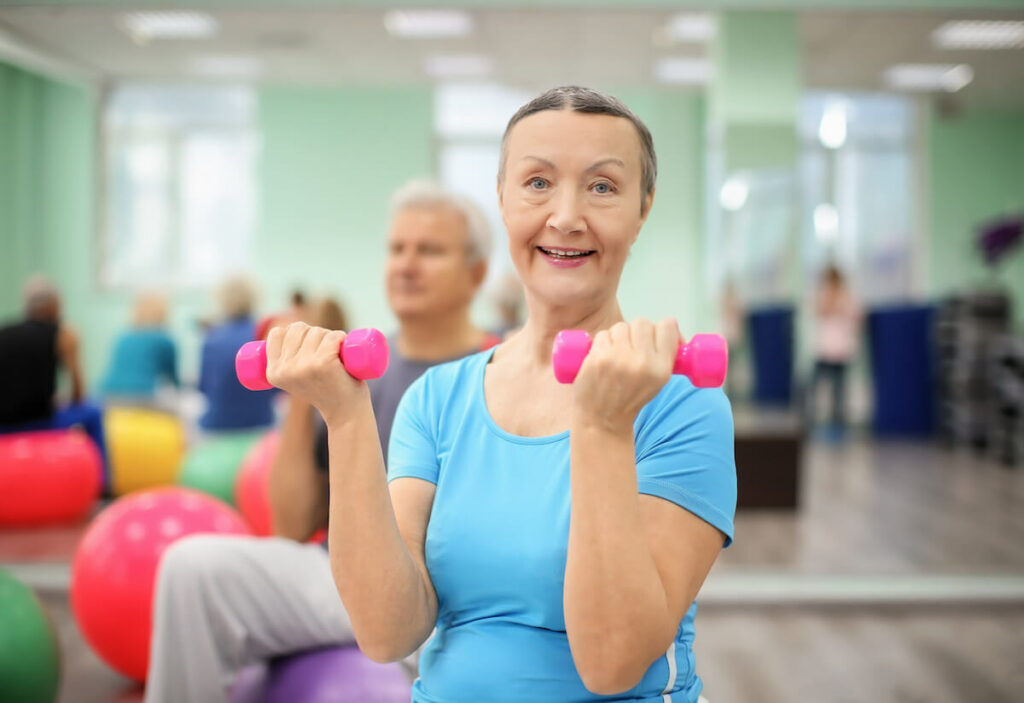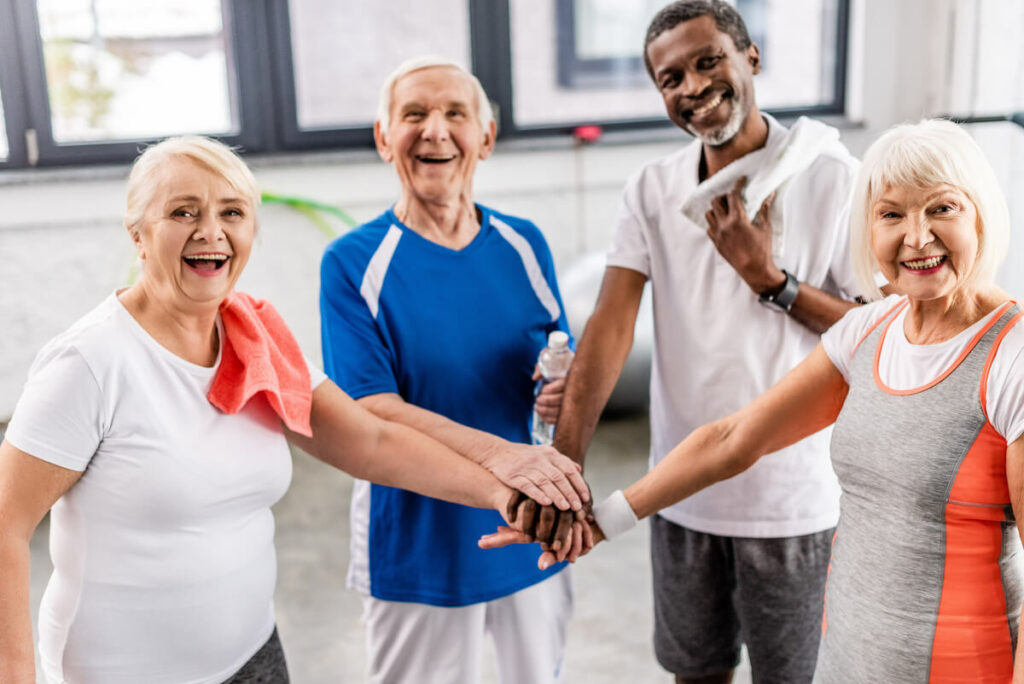Falls constitute a significant risk to older adults. According to research, nearly 50 percent of adults over 65 who break a hip have a survival rate of fewer than six months after the fracture. Of those who survive, less than one-third recover to their previous ability.
A hip fracture is a snowball of problems for seniors. Decreased mobility leads to lower activity levels, which can turn into limited opportunities for socialization and isolation, increasing the likelihood of developing dementia.
Without proper assistance or relocating to a care facility, the effects of a senior fall can become fatal fast. Improving balance and strength is critical for seniors. Exercise can be a vital part of that equation.
Pegasus Senior Living Health and Wellness consultant Dr. Sandra Petersen suggests simple home workouts to increase stability and muscle strength to prevent falls. Dr. Petersen recommends trying these with a capable partner to supervise and assist if possible. If you have trouble standing, you can complete most of these exercises while seated.

*Please consult your primary care doctor before engaging in any new exercises or changes in your routine.
Exercise 1: Sit and Stand
The first movement is a familiar motion, and all you need is a stable chair. Work toward a goal of ten repetitions, but make sure you feel steady and confident the whole time. Start with one or two repetitions to get comfortable.
- Find a sturdy chair with armrests.
- From a standing position, reach back to grab the armrests as a guide and extra support and slowly sit down in the chair. Be sure to use the leg muscles and not drop down into the chair.
- From the seated position, engage both legs and arms (pushing down on armrests) together to stand up.
- Pause and repeat.
Once you’re feeling comfortable with this exercise, increase the intensity by trying to stand with only one hand supporting. Work your way up to using no hands and close your eyes to improve balance.
Exercise 2: March in Place
March in place while holding onto the back of a sturdy chair, kitchen counter, or a locked stationary walker. Have a partner ready nearby with a chair if you become fatigued and need to sit down quickly. Start with a few march movements on each side and work up slowly.
- Stand with good posture and bring knees up, like marching in place.
- Do this slowly and deliberately, using muscles instead of striving for rapid movement.
- Aim for ten knee raises for each leg or 20 marching steps.
Modification: Do this exercise in a seated position if you’re unable to stand. Pay attention to posture and sit up as straight as possible to perform the exercise.
Exercise 3: Side Leg Raise
Again, while holding onto a sturdy chair back or a countertop, do this slowly and deliberately, using muscles instead of momentum. Avoid leaning forward or dipping the upper body to the opposite side while raising the leg. Start slow and work your way up.
- Stand with good posture with your feet approximately shoulder-width apart.
- Raise one leg out to the side, keeping toes pointed straight ahead toward the chair or countertop.
- Aim for ten repetitions on each side.
Modification: Do this exercise while seated with feet shoulder-width apart. Sit up as straight as possible with feet facing forward while raising knees to the side.
Exercise 4: Standing Kickback
This exercise engages the core and can essentially help tone the backside. Do this slowly and deliberately, using muscles instead of momentum. Avoid leaning forward or using a rocking motion while raising the leg.
- Hold on to a sturdy chair back or a countertop.
- Stand with good posture and raise the leg straight behind the body.
- Keep the leg straight without bending the knee.
- Aim for ten repetitions on each side. Start with a low number and work up slowly.
Modification: If unable to stand, try this exercise while lying face down. Place a thin pillow under the forehead for comfort. Try to raise the legs toward the ceiling without bending the knee.
For those with lower back issues, try this movement lying on the back and raising one leg at a time toward the ceiling.
Exercise 5: Standing Heel Raises
The purpose of this exercise is to strengthen the calf muscles to support healthy ankles and improve balance. One repetition equals a motion of toes up and heels up. Start with a low number of repetitions and work up.
- Hold on to a sturdy chair back or a countertop.
- Stand with good posture and roll up onto your toes, raising the heels in the air.
- Lower feet flat onto the floor and rock back on heels to lift toes into the air.
- Aim for ten repetitions
Keep in mind, exercises four and five are more complicated and may be too strenuous for some. If you are not feeling confident, stick with mastering the first three movements before trying the more advanced exercises.
Exercises for Balance
Challenging both sides of the brain can increase your balance; this is best done by working with your eyes closed. If you notice swaying or reaching out for support, continue working on this exercise with your eyes open. Once you can hold this position firmly for 30 seconds, move on to the next activity.

Balance Exercise 1
Stand with your feet about shoulder-width apart, eyes open, and hold steady for 10 seconds, working up to 30 seconds.
Balance Exercise 2
Stand with your feet together, eyes open, and hold steady for 10 seconds, working your way up to 30 seconds.
Decrease Senior Fall Risk With Strength and Balance
While it’s impossible to eliminate all risks for falls, recognizing the warning signs and maintaining strength and balance are crucial to living a longer and stronger independent lifestyle.
About Pegasus Senior Living
Pegasus Senior Living owns and operates dozens of senior living communities across the United States. To promote active and social lives for older adults, our communities offer independent living, personal care, assisted living, and memory care. Find a location near you with services to support your lifestyle.
